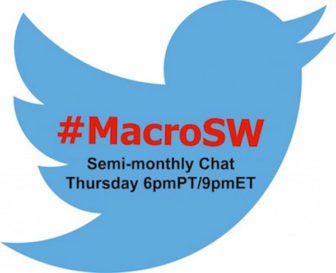
As a collective of social work professionals devoted to systemic change, the phrase “you can’t social work this” has always been grating. The gist of the phrase encompasses a lack of understanding of social work engagement coupled with a subtle yet harmful stereotype. The lack of understanding is arguably fair: “social work,” as a job title, covers areas of practice from micro-level engagement (counseling, therapy, for example) through macro-level change (policy influence, community leadership). These are the roles for which our accredited social work programs in higher education seek to prepare our students. The challenge is to find one definition that somehow captures the big picture of the work while including the details within.
While the lack of a widely accepted definition of social work continues to complicate an understanding of the profession, the stereotype is more troubling. For the public, the image of social work in action has a lot to do with short-term actions and well-intentioned goals, lacking in meaningful planning or impact. An example of this perception can be found in a recent piece in NPQ.
Spencer Wells’ article “What’s the Role of Elite Nonprofits in Fighting Inequality in Pittsburgh?” prominently features a well-worn assumption about social work practice, specifically the phrase, “We can’t social work this.” The reader may interpret this description of social work as something of a lopsided logic model; the problem of “inequality” is complex and deep-rooted, and any programmatic solution is too small, driven by short-term thinking. Any change sought by these actions will lead to little more than good intentions and no real change.
To be fair, in his article, Wells posits these interventions won’t work because inequalities exist “in the structure of economic and social relationships.” Wells describes one intervention (tutoring programs for low-income students) that, yes, fits that assumption: good-natured, well-intentioned, and completely useless in the long-term. No, you can’t just feel-good your way out of this. “The philanthropic elite” are guilty of this, according to Wells, and are indebted to wealthy donors, not the target population they purport to serve. Wells includes social work in this fallacy.
This seems to suggest social work curricula and professional practice models are based on nothing more than ineffectual noblesse oblige of wealthy do-gooders, a kind of academically sanctioned neoliberalism. That’s the problem with casual philanthropy; it’s the hallmark of a society that resists conflict and change. Not only are tutoring programs and similar efforts likely to fail to address the deeply-rooted problem of inequality, they may, though institutional racism, help keep inequality intact.
Sign up for our free newsletters
Subscribe to NPQ's newsletters to have our top stories delivered directly to your inbox.
By signing up, you agree to our privacy policy and terms of use, and to receive messages from NPQ and our partners.
For example, when social work professors facilitate discussions with students, one of the fundamental charges of social workers is to engage in social and political action, as stated in our Code of Ethics. Here, we find the real motivation of social work in the space of social justice: we must be fully aware of a problem, understand how a problem is defined, who is defining it, and then prepare intervention. We must be prepared to take action, but simply taking any action, no matter how good it looks or makes us feel, can lead to ineffective or harmful outcomes.
This is where the definition of social work must be clarified. A solution to inequality can be mapped with operational steps: pay equity for employees, new affordable developments for living, removing toxic lead from water systems, and “most of all, supporting grassroots empowerment,” as Wells asserts. It’s in this observation where we are compelled to assert the mission of social work, because all these steps reflect social work values and engagement. This is the change we seek.
#MacroSW is a hashtag we use to organize weekly live Twitter chats. It best represents our definition of macro social work practice, which you can read more about in our Macro Social Work FAQs. We are a collaboration of social workers, organizations, social work schools, and individuals working to promote macro social work practice. Macro social work practice focuses on changing larger systems, such as communities and organizations. It encompasses a broad spectrum of actions and ideas, ranging from community organizing and education to legislative advocacy and policy analysis. We have registered the hashtag with the Symplur Healthcare Hashtag Project, and you can read more about how #MacroSW is influencing public conversations on Twitter.
Macro-based social work practice is all about long-term change for the good of all members of a community. Wells seems to suggest that social work is only about engaging on a one-to-one level, rather than a macro-level. We’ve long overcome the erroneous assumption that social workers are focused on just the individual, that we are just short-term thinkers, and that we are well-intentioned but ineffective. To the contrary, the emergent leadership of social work professionals, engaging in critical thinking and planning to address social justice needs at the community level, is essential to addressing, and ultimately eliminating, inequality. We would like to personally invite Wells and readers to join #MacroSW on Twitter every Thursday night at 9pm EST to hear from macro social workers putting these values into action daily.
Citations
Wells, S. (November 17, 2017). “What’s the role of elite nonprofits fighting inequality in Pittsburgh?” Nonprofit Quarterly. Retrieved on May 2, 2018.
National Association of Social Workers (2018). “Social Work Code of Ethics.” Washington, DC: NASW.









